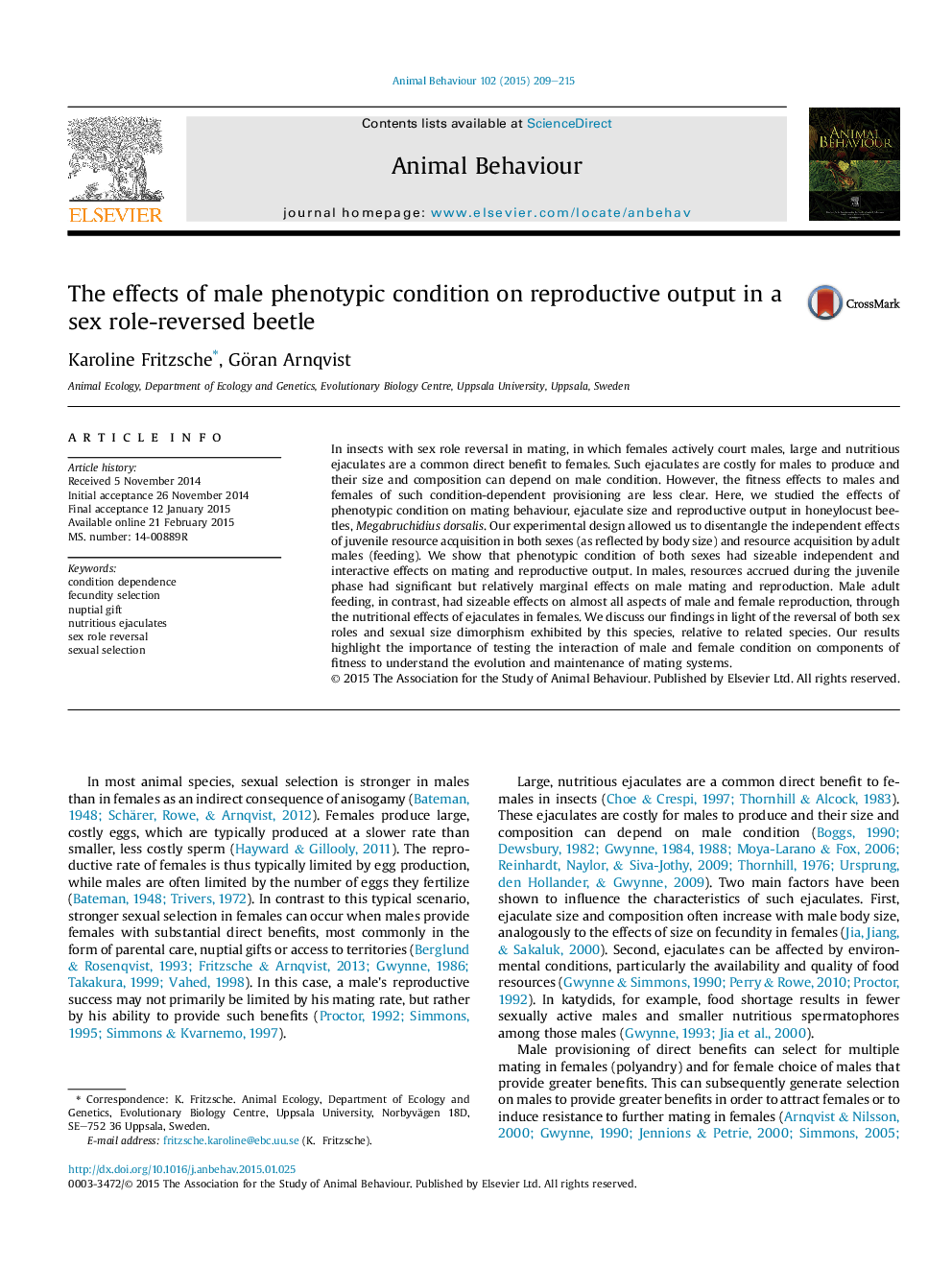| Article ID | Journal | Published Year | Pages | File Type |
|---|---|---|---|---|
| 8490055 | Animal Behaviour | 2015 | 7 Pages |
Abstract
In insects with sex role reversal in mating, in which females actively court males, large and nutritious ejaculates are a common direct benefit to females. Such ejaculates are costly for males to produce and their size and composition can depend on male condition. However, the fitness effects to males and females of such condition-dependent provisioning are less clear. Here, we studied the effects of phenotypic condition on mating behaviour, ejaculate size and reproductive output in honeylocust beetles, Megabruchidius dorsalis. Our experimental design allowed us to disentangle the independent effects of juvenile resource acquisition in both sexes (as reflected by body size) and resource acquisition by adult males (feeding). We show that phenotypic condition of both sexes had sizeable independent and interactive effects on mating and reproductive output. In males, resources accrued during the juvenile phase had significant but relatively marginal effects on male mating and reproduction. Male adult feeding, in contrast, had sizeable effects on almost all aspects of male and female reproduction, through the nutritional effects of ejaculates in females. We discuss our findings in light of the reversal of both sex roles and sexual size dimorphism exhibited by this species, relative to related species. Our results highlight the importance of testing the interaction of male and female condition on components of fitness to understand the evolution and maintenance of mating systems.
Related Topics
Life Sciences
Agricultural and Biological Sciences
Animal Science and Zoology
Authors
Karoline Fritzsche, Göran Arnqvist,
